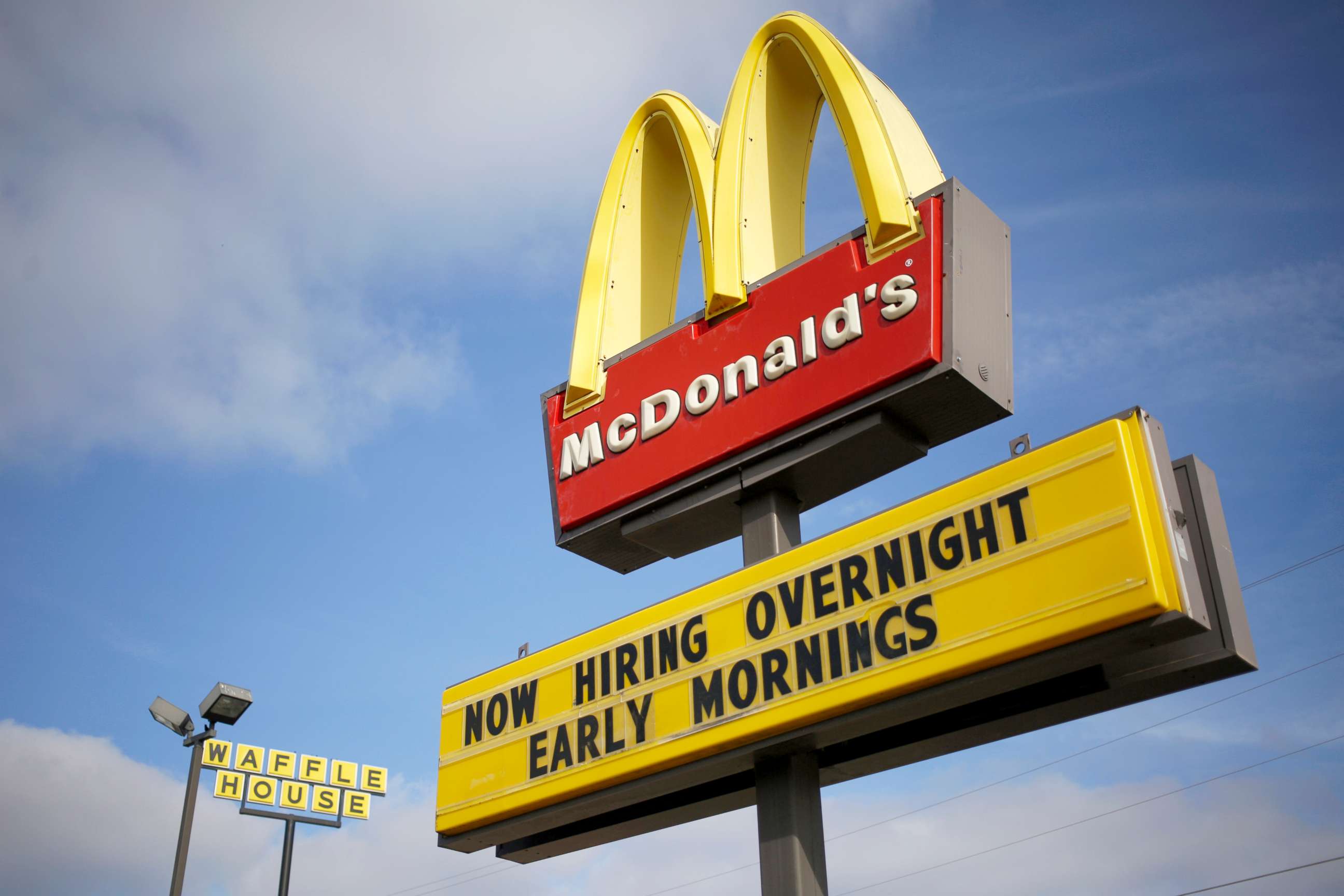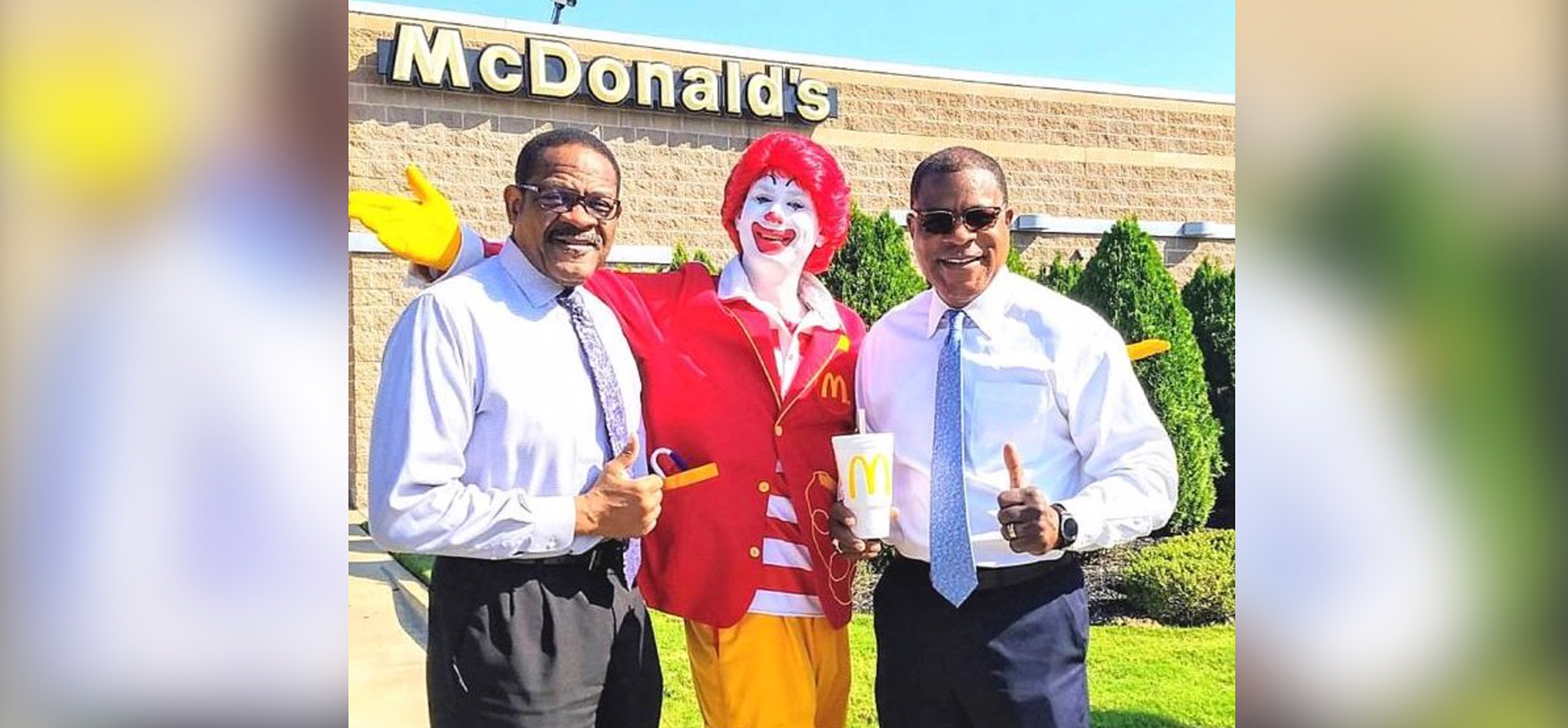Black franchisees sue McDonald's, alleging racial discrimination
A new lawsuit filed by two Black franchisees seeks class action status.
McDonald's was hit with a lawsuit from two current franchisees who allege racial discrimination, arguing in court documents that the fast food giant pushed Black franchisees to locations that were "financial suicide missions."
The suit was filed in the U.S. District Court for the Northern District of Illinois Eastern Division on Thursday and seeks class action status. It comes on the heels of a separate lawsuit filed last month by dozens of former franchisees that argued systemic racism ran rampant for Black franchisees formerly working at McDonald's. McDonald's has denied those claims.
The lead plaintiffs in the latest suit are James Byrd Jr. and Darrell Byrd, two brothers who own and operate four McDonald's in the Nashville, Tennessee, area. The Nashville region has "the highest cash flow disparity between White and Black McDonald's franchisees in the nation," the complaint states.
The court documents claim that the Byrd brothers "risk retaliation" by bringing forth the suit, but feel "they cannot allow other Black McDonald's franchisees to be misled and injured by the same pipeline of discrimination that has plagued Black franchisees for decades."
The suit was filed on behalf of themselves as well as 186 Black franchisees who own and operate McDonald's restaurants in the U.S., according to court documents.
"There is a lot of fear amongst the current operators with regards to suing McDonald's. The class action provides some protection against those fears because all of the other class members are not specifically named," James L. Ferraro, an attorney representing the Byrd brothers, said in a statement Thursday.

Current operators will be free to opt-in or opt-out of the class as determined by the trial judge, and the decision to be part of the class will be made by the individual franchisees, according to Ferraro.
"McDonald's led aspiring Black entrepreneurs to believe franchise ownership was a 'Golden Opportunity,' their ticket to the American dream. The reality was the opposite," the complaint alleges. "Black franchisees signed up for financial suicide missions."
The lawsuit argues that McDonald's growth strategy was "predatory in nature" and steered Black franchisees to areas with higher overhead costs, "where White franchisees refused to own and operate restaurants."
Moreover, the suit argues that McDonald's shifts the entire risk of loss to the franchisees, who are responsible for occupancy costs, renovations and more, despite these stores "historically underperforming."
The franchisees in the lawsuit "are not bad businesspeople, as McDonald’s has led them to believe," the complaint adds. Rather, "they are victims of McDonald’s targeted discrimination against Black franchisees, which McDonald’s covered up during years of parity deals and false promises."

The suit seeks compensatory damages in the billions -- or $4 million to $5 million per store.
McDonald's USA told ABC News in a statement that it takes the allegations very seriously and is currently reviewing the complaint.
"McDonald's has an obvious interest in franchisees maintaining successful and profitable restaurants, which is why McDonald's supports all franchisees, including those facing economic hardships," the company added. "With respect to the named plaintiffs in this complaint, Jim and Darryl Byrd, McDonald's has invested significantly in each of their respective businesses after they ran into business difficulties caused by mismanagement of their organizations."
"We will defend against this lawsuit while we move forward with our priorities to foster equitable opportunity for franchisees, suppliers and employees," the statement added.
McDonald's also said it has made multiple offers to purchase the Byrd brothers' remaining restaurants in an effort to address their business difficulties, but that the Byrds have pursued their claims in litigation instead.
The company also noted that the suit has been filed by two individuals who claim to represent a class, but this class action status has not been certified by a court yet.



